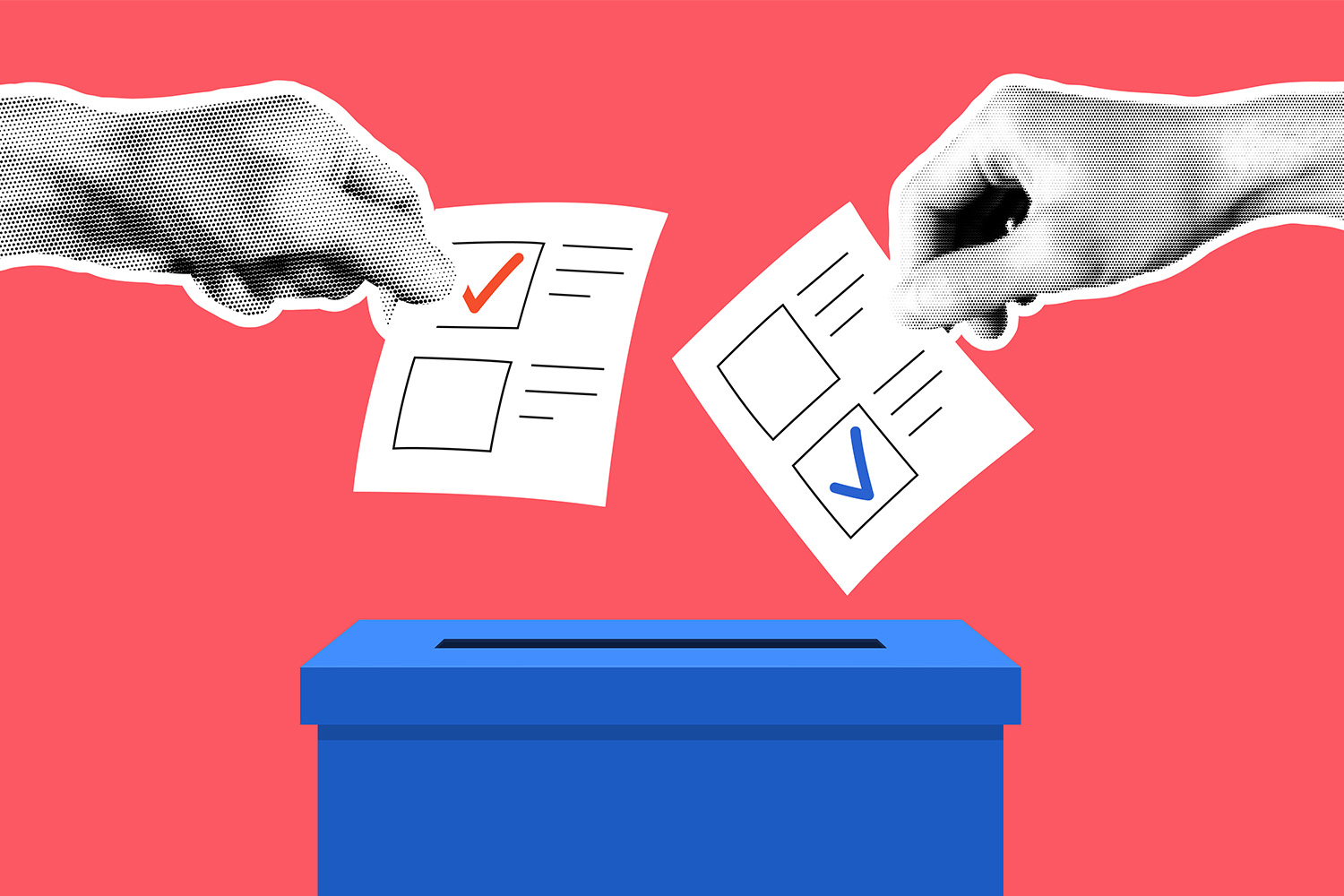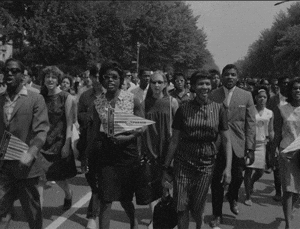- BlackVoter.Org
- Posts
- BLACKVOTER.ORG
BLACKVOTER.ORG

Georgia has kicked off early voting for the 2024 U.S.
presidential election with a bang, recording an impressive 251,899 ballots cast on the very first day—smashing previous records! As one of the crucial swing states, Georgia is a focal point for both Vice President Kamala Harris and former President Donald Trump as they vie for its 16 Electoral College votes. This surge in voter participation signals remarkable enthusiasm as the election heats up, and both parties are eager to capitalize on this momentum.
With the backdrop of ongoing controversies—stemming from Trump’s attempts to challenge the 2020 results—Georgia remains a battleground where every vote counts. As Election Day approaches on November 5, the stakes couldn’t be higher, with both candidates intensifying their efforts to sway voters, especially with demographic shifts potentially influencing the outcome.

In a thrilling turn of events leading up to the 2024 U.S.
presidential election, Donald Trump is gaining momentum against Kamala Harris, as recent polls show him with a six-point lead among key voter demographics in battleground states like Florida. A Mason-Dixon poll highlights shifting sentiments with Trump garnering 49% of support to Harris's 43%.
Voter preferences diverge sharply across gender and racial lines, with Trump favored among men and white voters, while Harris excels among African Americans. As both candidates ramp up their campaigns, addressing critical issues such as economic stability and social protections could sway undecided voters.
The next few weeks promise intense political drama as each candidate strategizes to capture the undecided electorate. With Trump’s appeal extending to concerns over immigration, and Harris emphasizing equity, the race is tightening.

As we dive into the pivotal election year of 2024, the urgency of remembering our nation’s history becomes ever more significant. Veryl Victoria Miles reflects on milestones like the Civil Rights Act and the Supreme Court's Brown v.
Board of Education decision, both emblematic of the struggles for justice and equality in America. In a call to honor voices of justice, she highlights Fannie Lou Hamer’s powerful testimony at the 1964 Democratic National Convention, emphasizing the ongoing quest for representation and dignity.
With the unique dynamics of this presidential race, particularly featuring figures like Kamala Harris and Donald Trump, Miles urges us to remember the sacrifices made by those who fought for civil rights. As we head to the polls this November, let’s carry with us the legacy of those who championed justice, embodying the spirit of a democracy striving for greatness for all its citizens.

As Election Day approaches, former President Barack Obama’s urgent message to Black voters, particularly Black men, emphasizes the importance of supporting Vice President Kamala Harris. Recent polls reveal a concerning trend, with a notable portion of Black likely voters considering Donald Trump, raising alarms among Harris's campaign.
During a campaign stop in Pittsburgh, Obama candidly addressed the declining energy and turnout in Black communities, urging voters not to underestimate the significance of supporting a Black woman in a leadership role. He challenges the dismissive attitudes toward Harris and highlights Trump's history of racism and disrespect towards Black communities.
Obama implores Black men to reflect on their values and take pride in supporting someone who represents their collective identity. His call to action, “C’mon, man,” resonates as a powerful reminder of the stakes involved in this election, encouraging unity and pride within the community.

In a startling discussion on MSNBC, political strategist Stuart Stevens warned that former President Donald Trump's supporters could take extreme measures, even resorting to burning down voting centers to disrupt the upcoming election. As a seasoned advisor for the Lincoln Project and former Mitt Romney campaign strategist, Stevens expressed grave concerns about the potential for violence fueled by fears of election fraud—fears rooted in racial bias targeting urban, predominantly Black neighborhoods.
He emphasized that ongoing challenges to voting reflect a deeper attempt to disenfranchise millions. Stevens cautioned that if the Trump campaign believes it can’t win fairly, we should prepare for chaos that could obstruct the certification of election results.
His chilling prediction raises alarms about the state of democracy as we approach a pivotal election season, questioning the lengths to which some may go to secure power.


Vice President Kamala Harris recently introduced an “Opportunity Agenda for Black Men,” a response to ongoing criticism from Black male voters regarding her past criminal justice record. The plan aims to support Black men through initiatives like one million forgivable loans, mentorships, and health programs.
However, critics argue that by not focusing specifically on Black men, the plan falls short of their needs. The discourse around this agenda highlights a crucial point: the diverse perspectives within the Black voting bloc.
A new study, the Black Values Survey, reveals that Black voters are far from a monolith, revealing several distinct cohorts with varying priorities and beliefs. This nuanced understanding challenges the oversimplified view of Black voters, aiming for a richer conversation in political circles.
The push for more tailored policies underscores the necessity of recognizing this diversity in shaping effective political strategies.
In the lead-up to the tight 2024 presidential election, Vice President Kamala Harris is ramping up efforts to engage Black male voters, highlighting the risk of former President Donald Trump "institutionalizing" harmful policing tactics. Meanwhile, Trump is positioning himself against Harris' immigration policies, claiming they devastate communities of color.
During a radio town hall, Harris advocated for decriminalizing marijuana and addressing systemic racial disparities, while Trump's rhetoric targets immigrants as a threat to jobs for Black and Latino citizens. With only weeks until Election Day, both candidates are laser-focused on pivotal groups—Harris aims to energize the Black vote, while Trump seeks to narrow his deficits among women voters.
Each is attempting to sway opinions through rallies, town halls, and targeted proposals, making it clear that the stakes are high for both parties in this closely contested race.

Kamala Harris is making a desperate move to win back black male voters after four years of perceived neglect and a noticeable shift towards support for Trump. Despite a poll showing 78% of black voters favoring her, Harris's support has dropped significantly since 2020.
Her recent attempts to court this demographic have included bringing in Obama to rally support, but this backfired as many found his scolding tone off-putting. Instead of genuine outreach, her campaign seems to offer last-minute gimmicks, like vague health initiatives and questionable financial proposals, which many view as pandering.
Critics highlight her lack of authentic connection to black male issues, questioning her sincerity given her background and past actions. With just weeks until the election, Harris is struggling to regain lost ground, revealing a troubling disconnect between her campaign and the community she's attempting to engage.

“Voting Is Social Work” advocates for empowering social workers to engage disenfranchised communities in the electoral process. Led by James Jeter, whose own experiences with incarceration fuel his commitment to civic education, the initiative emphasizes the transformative power of voting.
Many formerly incarcerated individuals are unaware of their voting rights, resulting in widespread disenfranchisement across the U.S.
, particularly in communities of color. Tanya Rhodes Smith of UConn's Nancy A.
Humphreys Institute supports this mission, highlighting the complexities of voter registration, especially for vulnerable populations. The campaign trains social workers nationwide to bridge the gap in knowledge, ensuring clients are informed and empowered to exercise their rights.
With support from over 20 professional organizations, Voting Is Social Work aims to foster engagement throughout the year, promoting political participation as a means of breaking cycles of disenfranchisement and enhancing community well-being. Discover more at voting.
socialwork.uconn.
edu.

As the 2024 presidential election approaches, the pivotal role of Black voters is coming under the spotlight. While historical trends show a strong lean towards the Democratic Party, the Trump campaign is making strides to attract Black male voters, raising questions about the impact this could have in key states like Pennsylvania.
Experts discuss what issues resonate most within the Black community and examine Vice President Kamala Harris's connection to these voters. The ongoing dialogues highlight the significance of understanding and addressing the unique needs and concerns of Black Americans in shaping the electoral landscape.
As narratives shift, the engagement and decisions of Black voters could very well pivot the outcome of the upcoming election, making their voices more crucial than ever.
